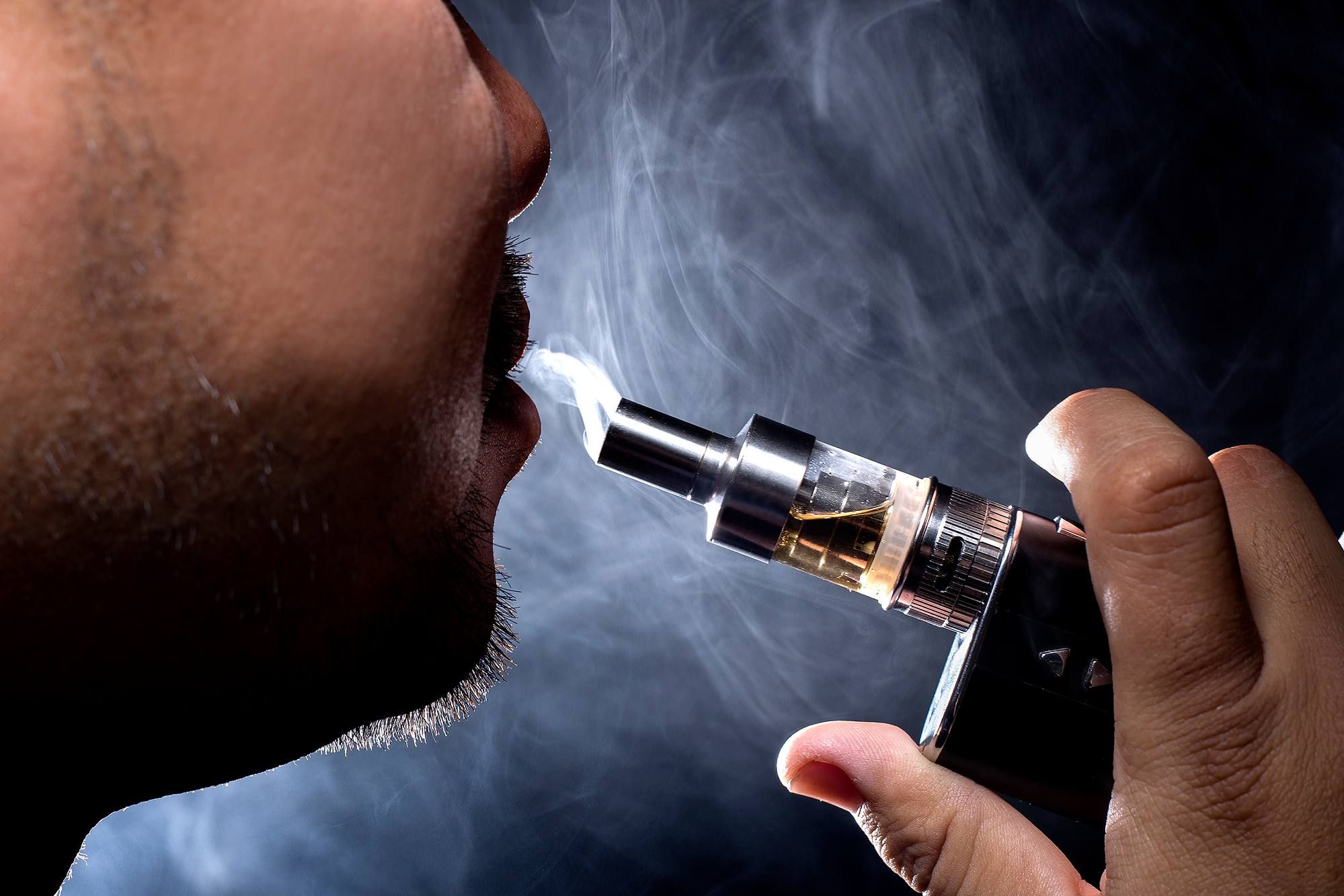
Reports of people who have seizures after vaping have raised serious questions about the safety of electronic cigarettes, which have grown in popularity in recent years.
Currently, the U.S. Food and Drug Administration is conducting an investigation after receiving 35 adverse event reports involving e-cigarette users who have experienced seizures after vaping, using products such as JUUL, a popular brand among teens and young adults.
What is vaping?
Vaping means inhaling the vapor of a liquid made from nicotine and various chemicals and flavoring agents. This liquid is heated with the use of what is known as a “vape pen,” or electronic cigarette, creating a vapor that can be inhaled.
Manufacturers of electronic cigarettes such as JUUL claim that their products are safer than combustible tobacco, as they do not produce tar. They furthermore claim that “vaping” can help cigarette smokers to give up the tobacco habit. However, a growing body of evidence shows that “vape” can be just as harmful as tobacco in its own way. This includes suffering seizures after vaping.
In fact, many users of these products may not even be aware that they are inhaling nicotine. According to the Centers for Disease Control, around two-thirds of Juul users between the ages of 15 and 24 were unaware that vape pens always contain nicotine, rather than simply flavored vapor.
The fruity flavors advertised by many vape pen companies may be attracting teens and minors to try out the products. Prior to the explosion in popularity of vape pens and e-cigarettes, teen nicotine use had been in decline for years. Now, nicotine use by teens has skyrocketed.
In order to crack down on teen e-cigarette use, many flavors of e-cigarettes and vape pens were removed from the U.S. market in January 2019. On Jan. 2, the Trump Administration announced that fruit, dessert, and mint flavors of e-cigarette and vape pods would be banned in the U.S. According to some research, these flavors may be very popular with youth and underage e-cigarette smokers. Under the new law, only menthol and tobacco flavored products will be allowed to remain on the market. In June 2022, reports indicated that the FDA would remove all JUUL products from the market.
What are seizures?
A seizure is essentially a short circuit in the brain. For various reasons, not all of which are fully understood, there is a sudden spike in electrical activity in the brain; the consequences can range from a momentary lapse of consciousness to full bodily convulsions. For centuries, seizures were attributed to what was known as the “falling sickness,” which modern science calls epilepsy.
Aside from epilepsy, seizures may be attributable to hypoglycemia, alcohol withdrawal, low sodium levels in the blood, or brain diseases or injuries. There is also evidence that seizures can be caused by excess amounts of nicotine.
How do people suffer seizures after vaping?
In a recent statement, FDA Commissioner Dr. Scott Gottlieb noted that seizures are a known side effect of nicotine poisoning. Nicotine itself is an alkaloid that is found in plants of the deadly nightshade family, which includes the tobacco plant. It is also one of the most addictive substances known to science, which is why cigarette smokers find it so difficult to give up the habit.

According to reports submitted to the FDA, seizures after vaping can occur within a few moments or as long as 24 hours later. Nicotine-related seizures may be as short as a few seconds or go on for several minutes.
In stark contrast, members of the e-cigarette industry have tried to combat the concerns about seizures after vaping. Vaping 360, a vaping media website and proponent of vaping as a “cleaner alternative” to cigarette smoking is one source that takes this view.
In January 2020, Vaping 360 said that the recent concern over vaping seizures is significantly overblown. The source notes that former FDA commissioner Scott Gottlieb expressed concern that there were 35 cases of seizures over the last ten years, that could have been related to vaping.
The source then impugning the motives of Gottlieb’s concern over the issue, suggesting that Gottlieb made statements about his concern over e-cigarettes “probably waiting confirmation that his post-FDA position at pharmaceutical giant Pfizer was secured.”
Beyond challenging the motives of government officials’ concern over vaping, Vaping 360 then moves on to refute a deduction central to many experts current thoughts about why vaping might be connected to seizures.
Nicotine poisoning has long been thought to be connected to seizures. Some experts now have worried that the high nicotine content of vapes could be connected to seizures. They cite that in general, vapes can deliver more nicotine than traditional cigarettes, but some vape products are unregulated, and may deliver a dangerous amount.
However, Vape 360 disagrees with this belief. According to Vape 360, it is very unlikely that a vase user could inhale enough nicotine quickly enough to cause nicotine poisoning. Vape 360 believes that government experts are conflating a “little nicotine buzz” delivered with an actual overdose of nicotine, and wrongly extrapolating that vapes can cause seizures.
Instead, Vape 360 argues that the 35 supposed instances of vape-related seizures in 10 years were really caused by underlying conditions in the person who experienced — and not caused by the vape they were using.
What did e-cigarette companies know?
This is the question that is at the heart of current lawsuits against JUUL Labs. One of the complaints was filed by a 15-year-old Florida girl, who claims she became addicted to vape because she was unaware of the dangers of nicotine addiction. She alleges that JUUL “deceptively sold or partnered [with tobacco companies] to sell JUUL product to plaintiffs as non-addictive nicotine delivery systems or less addictive nicotine products than cigarettes, when defendant knew it to be untrue.”
The plaintiff further claims that “JUUL has intentionally downplayed, misrepresented, concealed, and failed to warn of heightened risk of nicotine exposure and addiction.”
Several other class action lawsuits argue that JUUL products directly contributed to the youth vaping epidemic that put countless young adults at risk for health issues.
JUUL agreed to pay $438.5 million to resolve allegations from 34 state officials to end a two year long investigation into the company’s marketing tactics.
This article is not legal advice. It is presented
for informational purposes only.
ATTORNEY ADVERTISING
Top Class Actions is a Proud Member of the American Bar Association
LEGAL INFORMATION IS NOT LEGAL ADVICE
Top Class Actions Legal Statement
©2008 – 2026 Top Class Actions® LLC
Various Trademarks held by their respective owners
This website is not intended for viewing or usage by European Union citizens.
E-mail any problems with this form to:
[email protected].












